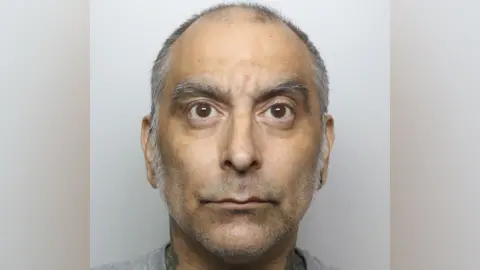The recent conviction of Jason King, a 55-year-old man from Downley, Buckinghamshire, has brought to light the serious risks posed by individuals armed with weapons, particularly in disputes that escalate to violence. King was sentenced to nine years in prison after he shot a police officer in the leg using a crossbow during a confrontation that began as a neighborly dispute. The incident took place on May 10, 2024, creating shockwaves throughout the community and raising questions around public safety and mental health issues.
King was involved in a violent altercation with a neighbor, which prompted authorities to dispatch officers to the scene. Upon their arrival, he reportedly fired at police officers, demonstrating reckless disregard for human life. Specifically, PC Curtis Foster, one of the responding officers, was shot in the leg with a bolt launched from a crossbow. The injury, described as a two to three-centimeter wound, thankfully did not prove life-threatening, and Foster was able to recover and return to duty. The victim of King’s earlier attack, too, was able to recover from a stab wound inflicted during the same incident.
During the court hearing held at Amersham Crown Court, presiding Judge Jonathan Cooper emphasized the significant threat King posed, stating that he behaved as if he was “trying to hunt down” the officers. The judge likened King’s actions to an individual “attempting to settle a score with police,” highlighting the dangerous escalation of what began as a domestic dispute. This assessment is pivotal as it delineates the psychological state of the perpetrator at the time of the offense and the implications such behavior has on law enforcement personnel.
The court was informed that Jason King had purchased the crossbow online for less than £20, indicating that such weapons may be more accessible than previously thought. This alarming detail raises issues regarding regulations surrounding weapon ownership, particularly concerning mental health. King has a documented history of mental health challenges, which were considered during the sentencing. His defense lawyer, Mark Kimsey, highlighted King’s struggles with anxiety and depression, suggesting that substance use, specifically cannabis, may also have exacerbated his fragile mental state.
In a poignant statement, PC Foster shared how the incident affected him profoundly, stating it redefined his perception of risk in his line of work. He acknowledged feeling more cautious and anxious since the shooting, a testament to the psychological impact such traumatic events have on law enforcement officers. This emotional toll is often overlooked in discussions focused on physical injuries but is critical in understanding the full ramifications of violence against police personnel.
The prosecution presented King’s prior convictions, which included offenses related to violence and weapon possession, painting a picture of an individual with a history of troubling behavior. This background plays a significant role in the court’s considerations, revealing a pattern of aggression that culminated in the violent act against PC Foster.
As the community reflects on this incident, it underscores the importance of mental health interventions and proper screening for those exhibiting violent tendencies. The case of Jason King serves as a stark reminder of how quickly a situation can escalate and the dire consequences that can follow. The ruling of nine years in prison aims not only to hold King accountable for his actions but also to send a message about the dangers faced by those who serve to protect society.
Finally, as King begins his prison sentence, the case transitions from a legal resolution back into the broader societal conversations about mental health, public safety, and the necessary reforms needed to ensure both community and officer safety in the future.












